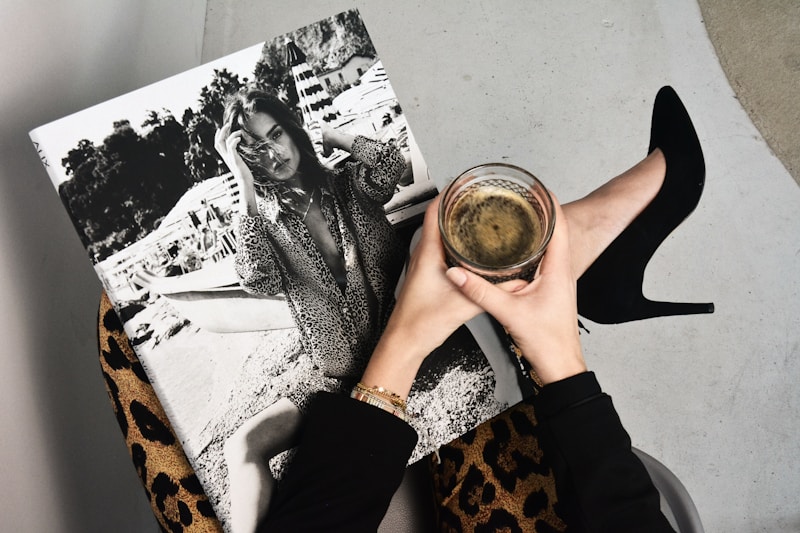The Allure of Couture Fabrics: A Comprehensive Guide
The Allure of Couture Fabrics: A Comprehensive Guide
Introduction to Couture Fabrics
Couture fabrics represent the pinnacle of luxury in the textile world, exuding elegance and sophistication. Fashion designers and enthusiasts alike are captivated by these exquisite materials, which play a crucial role in the creation of high fashion garments. This article delves into the rich history, types, characteristics, and uses of couture fabrics. We will also address common questions related to these luxurious textiles, helping you appreciate their true value.
What Are Couture Fabrics?
Couture fabrics are high-quality textiles meticulously crafted to create exclusive garments. The term 'couture' originates from the French word for 'sewing' and refers specifically to the bespoke fashion created by top designers. Unlike mass-produced materials, couture fabrics are often limited in availability and are characterized by their superior craftsmanship, unique patterns, and luxurious feel.
Types of Couture Fabrics
There is a plethora of couture fabrics that cater to various design needs, each with its unique charm and properties. Here are some of the most popular types:
| Fabric Type | Description | Common Uses |
| Silk | Soft and lustrous, silk is a natural protein fiber. | Evening gowns, blouses, scarves |
| Chiffon | A lightweight, sheer fabric that flows beautifully. | Layered dresses, overlays, drapes |
| Taffeta | Crisp and structured, taffeta has a slight sheen. | Formal wear, evening gowns, ball gowns |
| Organza | A thin, plain weave fabric, organza is lightweight and sheer. | Wedding dresses, elegant overlays |
| Velvet | Soft and plush, velvet has a rich texture. | Coats, evening dresses, upholstery |
| Lace | An intricate fabric with open weave patterns. | Bridal wear, trimming, overlays |
| Brocade | A heavy jacquard fabric, often woven with gold or silver threads. | Couture gowns, jackets, traditional wear |
The Characteristics of Couture Fabrics
Couture fabrics are distinguished by several key characteristics that make them stand out in the fashion industry:
- Quality: Couture fabrics are produced using the finest materials, ensuring durability and a luxurious finish.
- Texture: The tactile experience of couture fabrics is unparalleled; they often possess unique textures that enhance the design.
- Customizability: Many couture fabrics can be dyed or embellished to meet specific design requirements.
- Exclusivity: With limited production runs, couture fabrics maintain their allure and rarity.
How to Care for Couture Fabrics
Proper care is essential to maintain the integrity and beauty of couture fabrics. Here are some tips for ensuring their longevity:
- Dry Cleaning: It is often best to dry clean garments made from couture fabrics to avoid damage.
- Avoid Moisture: Keep these fabrics away from direct moisture, as they can absorb water and lose their structure.
- Store Properly: Use padded hangers or acid-free tissue paper to store couture garments, preventing creases and damage.
- Handle with Care: When wearing or trying on, always be cautious to avoid snagging or tearing the fabric.
Common Questions About Couture Fabrics
As interest in couture fabrics grows, many questions arise. Here are some frequently asked questions:
1. Where Can I Buy Couture Fabrics?
Couture fabrics can be found in specialty fabric stores, high-end boutiques, and online retailers that focus on luxury textiles. Brands like Mood Fabrics and Fabrics.com offer a wide selection of couture-quality materials.
2. How Are Couture Fabrics Different from Regular Fabrics?
The main difference lies in the quality and craftsmanship. Couture fabrics are often hand-selected by designers and made from finer fibers compared to regular fabrics, which may be mass-produced.
3. Can I Use Couture Fabrics for Everyday Wear?
While couture fabrics are often associated with high fashion, they can be incorporated into everyday wear. However, due to their delicacy, it's advisable to reserve them for special occasions unless properly cared for.
4. What Should I Consider When Sewing with Couture Fabrics?
Sewing with couture fabrics requires specialized techniques. It is important to use appropriate tools, such as sharp scissors and fine needles, and to follow specific patterns designed for delicate fabrics.
The Importance of Couture Fabrics in Fashion Design
Couture fabrics play a pivotal role in the world of fashion design, allowing designers to express their creativity and craftsmanship. These materials help bring visions to life, creating garments that are not only beautiful but also tailored to fit like a glove. Additionally, couture fabrics often feature intricate detailing, such as embroidery, beading, and unique prints, setting high fashion apart from mass-market clothing.
Conclusion
In conclusion, couture fabrics are an essential aspect of high fashion, celebrated for their quality, exclusivity, and stunning aesthetics. Whether you are a designer looking to elevate your creations or a fashion enthusiast eager to learn, understanding couture fabrics is vital. Remember to care for these luxurious textiles properly to ensure they remain as beautiful as the day you acquired them. When working with couture fabrics, embrace their unique qualities and let your creativity flourish. Explore the enchanting world of couture fabrics and discover how they can transform your fashion experience!

